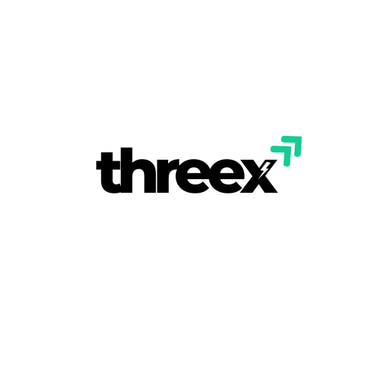How Early Learning Affects Future Success: The Domino Effect You Can't Ignore
Early learning isn’t just about singing the ABCs or stacking colorful blocks. It's the bedrock of future triumphs—or stumbles.
4/25/20253 min read


Imagine building a skyscraper on a shaky foundation. Sounds like a disaster waiting to happen, right? The same goes for a child’s education. Early learning isn’t just about singing the ABCs or stacking colorful blocks. It's the bedrock of future triumphs—or stumbles.
Today, we’re diving into why those preschool scribbles, counting games, and tiny tantrums could determine whether your child becomes the next Einstein—or the next cautionary tale. Buckle up, because the data will surprise you, and the real-world examples will leave you rethinking everything!
Why Early Learning Is the Secret Sauce to Lifelong Success
If early learning were a stock, Warren Buffett would have invested yesterday. Studies show that 90% of a child's brain development happens before the age of five (Center on the Developing Child, Harvard University). That's right, ninety percent. Miss that window, and you're playing a high-stakes game of catch-up.
A longitudinal study known as the Perry Preschool Project followed disadvantaged children from the 1960s through adulthood. Kids who received quality early education were:
44% more likely to graduate from high school
42% more likely to earn over $20,000 per year at age 40
46% less likely to have served time in jail
In short: Early education doesn't just teach ABCs—it changes destinies.
The Power of Early Learning Programs: Turning Toddlers Into Titans
Real-Life Case Studies: Proof in the Pudding
Case Study 1: The HighScope Perry Preschool Project
Let’s circle back to the Perry Preschool Project because its results are chef’s kiss. Participants, now in their 50s and 60s, have consistently shown higher earnings, better health, and stronger relationships compared to those who missed out. Talk about a return on investment!
Case Study 2: The Abecedarian Project
Another showstopper: The Abecedarian Project. Starting in the 1970s, researchers provided intensive early childhood education to at-risk kids. Fast forward 30 years—these kids had higher IQs, better reading and math skills, and even lower rates of heart disease and depression. Turns out, learning your colors and shapes early on might just save your life!
Fun Fact Break: Kindergarten Readiness = College Readiness?
Get this—research from the American Educational Research Association found that kids who excel in kindergarten are more likely to earn a college degree. Yes, those who could sit still during story time without causing a crayon mutiny are now holding diplomas and cashing hefty paychecks.
Early learning = fewer meltdowns now, bigger paychecks later.
The Science Behind Early Brain Development: It’s Like Wiring a Supercomputer
Your toddler's brain isn’t just growing—it’s exploding with connections. At its peak, a child's brain forms more than 1 million neural connections per second (Center on the Developing Child). Picture a fireworks show inside their tiny heads!
High-quality early learning experiences—think interactive reading, problem-solving games, and social play—help strengthen the "wiring" that will later support complex skills like critical thinking, emotional regulation, and creative innovation.
Neglect this phase, and it's like building a tech startup with dial-up internet. No bueno.
Why Parents and Policymakers Need to Pay Attention (Like, Yesterday)
Investing Early = Saving Big Later
James Heckman, a Nobel Prize-winning economist (and professional smart guy), crunched the numbers: every $1 invested in early childhood education returns up to $13 in future savings on remedial education, healthcare, and incarceration costs.
Imagine investing $1 and getting $13 back. Beats Bitcoin, doesn’t it?
And yet, only 37% of American four-year-olds were enrolled in publicly funded preschool programs as of 2022 (National Institute for Early Education Research). Yikes. If education were a party, a lot of kids are still stuck outside the velvet ropes.
Countries That Got It Right: Lessons from Finland and Singapore
Finland and Singapore are the Beyoncé and Jay-Z of early education. In Finland, kids don’t start formal schooling until age 7—but before that, they’re immersed in play-based learning that develops social and cognitive skills. Result? Finland consistently ranks at the top of global education charts.
Meanwhile, Singapore invests heavily in early childhood educator training and curriculum development. Their kids are acing international math and science tests like it’s nobody’s business.
Moral of the story? Smart nations invest in smart kids—early.
How You Can Boost Early Learning at Home
Don’t Just Teach—Play and Converse!
You don't need a Ph.D. in Education to make a difference. Here’s the secret formula:
Talk, talk, talk: Narrate your day, ask questions, and encourage your child to express themselves.
Read daily: Kids who are read to at home have a vocabulary up to 1.5 million words larger than those who aren't (Ohio State University study).
Play smart: Choose toys and games that encourage problem-solving and creativity.
Basically, if you want your toddler to become a CEO one day, start building those LEGO towers today.
Final Mic Drop
Early learning isn’t just nice to have—it’s a life-altering, society-shaping, future-defining necessity. Whether you're a parent, educator, or just someone who cares about the next generation, investing in those early years is non-negotiable.
Remember: the future doesn’t start at graduation. It starts in the sandbox.
